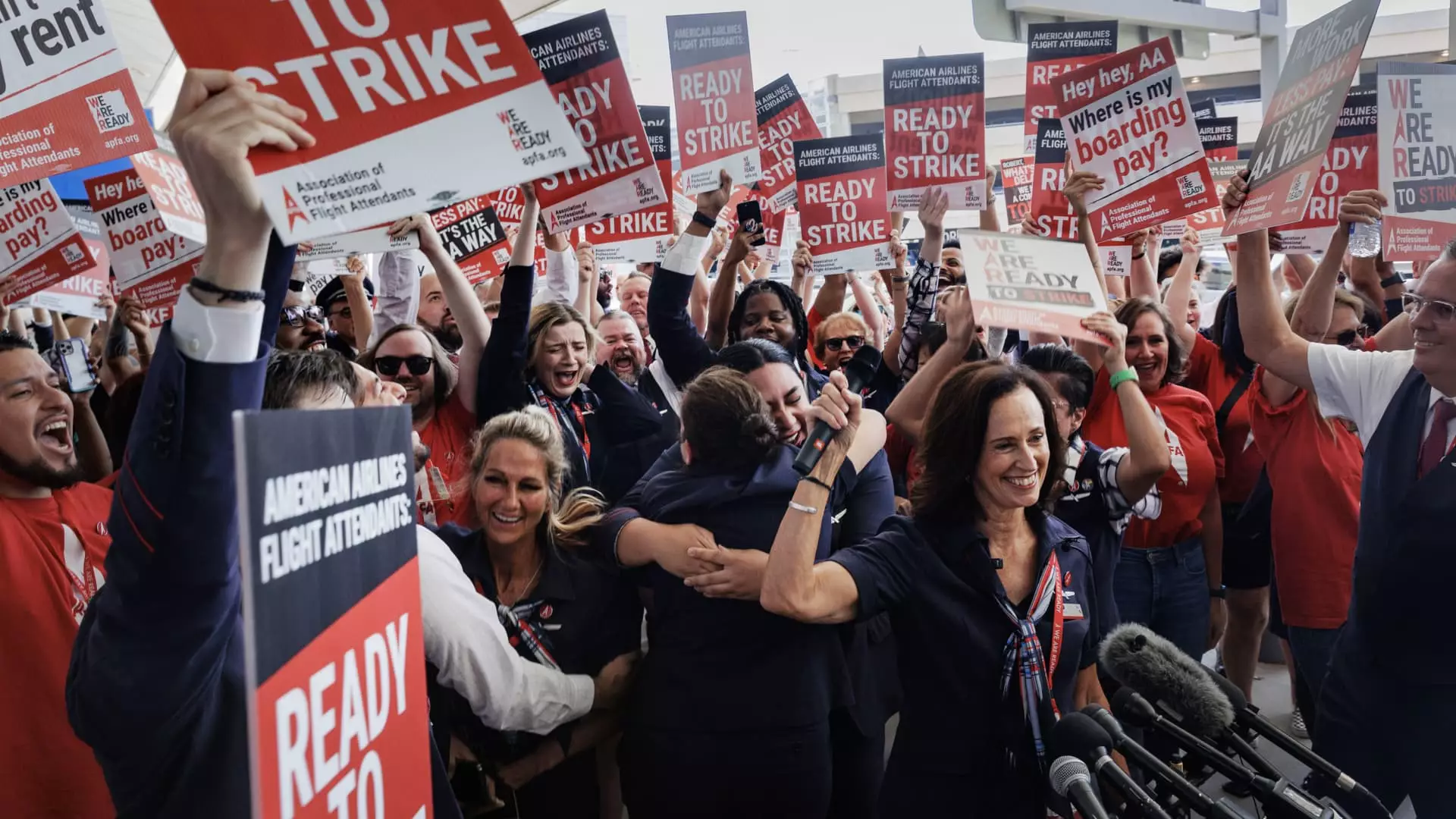In a decisive move that reflects shifting dynamics in labor relations within the airline industry, American Airlines flight attendants have ratified a robust five-year labor agreement. This pivotal decision concluded one of the most heated contract negotiations in recent memory, securing immediate wage increases for cabin crews of up to 20.5%, effective from the start of October. The overwhelming approval, with 87% of voting members endorsing the contract, showcases a significant moment of unity and achievement among the roughly 28,000 attendants represented by the Association of Professional Flight Attendants (APFA).
The contract has been described by APFA President Julie Hedrick as a monumental stride for flight attendants, not only due to the wage hikes but also because it includes substantial retroactive pay. This retroactive compensation acknowledges the prolonged duration of negotiations, which were greatly impacted by the challenges posed by the COVID-19 pandemic. As the cost of living continues to escalate, the push for higher wages and improved working conditions has become increasingly critical for airline employees who have faced considerable stress and scrutiny in recent years.
The signing of this agreement is not just a win for American Airlines staff; it also signals a broader trend affecting labor negotiations in the airline sector. Key figures such as Transportation Secretary Pete Buttigieg and Labor Secretary Julie Su were instrumental during discussions, reflecting governmental interest in stabilizing workforce relations amidst rising economic pressures. With over 160 lawmakers advocating for expedited resolutions across the airline industry, this contract serves as a beacon of hope for other service workers who are grappling with similar issues in their respective negotiations.
While American Airlines celebrates this agreement, the airline industry is witnessing a wave of negotiations that could redefine labor relations. For instance, United Airlines continues to wrestle with its own contract discussions, and Alaska Airlines flight crews recently rejected a proposed deal, illustrating the tension that remains pervasive in the sector. This wave of labor activism is not limited to airlines; numerous industries are experiencing similar movements, taking cues from successful negotiations in the auto and entertainment sectors.
As American Airlines flight attendants prepare to embark on this new contractual era, they are part of a larger narrative of workers demanding fair compensation. Concurrently, Boeing employees are casting votes on a new contract that proposes even larger wage increases, which many workers are poised to reject. Should negotiations stall, the potential for strikes looms large, echoing the sentiments felt across various labor markets. The successes and challenges faced by airline workers will undoubtedly set precedents that could influence future negotiations across different sectors, emphasizing the necessity for adequate worker representation and fair labor practices in a rapidly evolving economic environment.


Leave a Reply